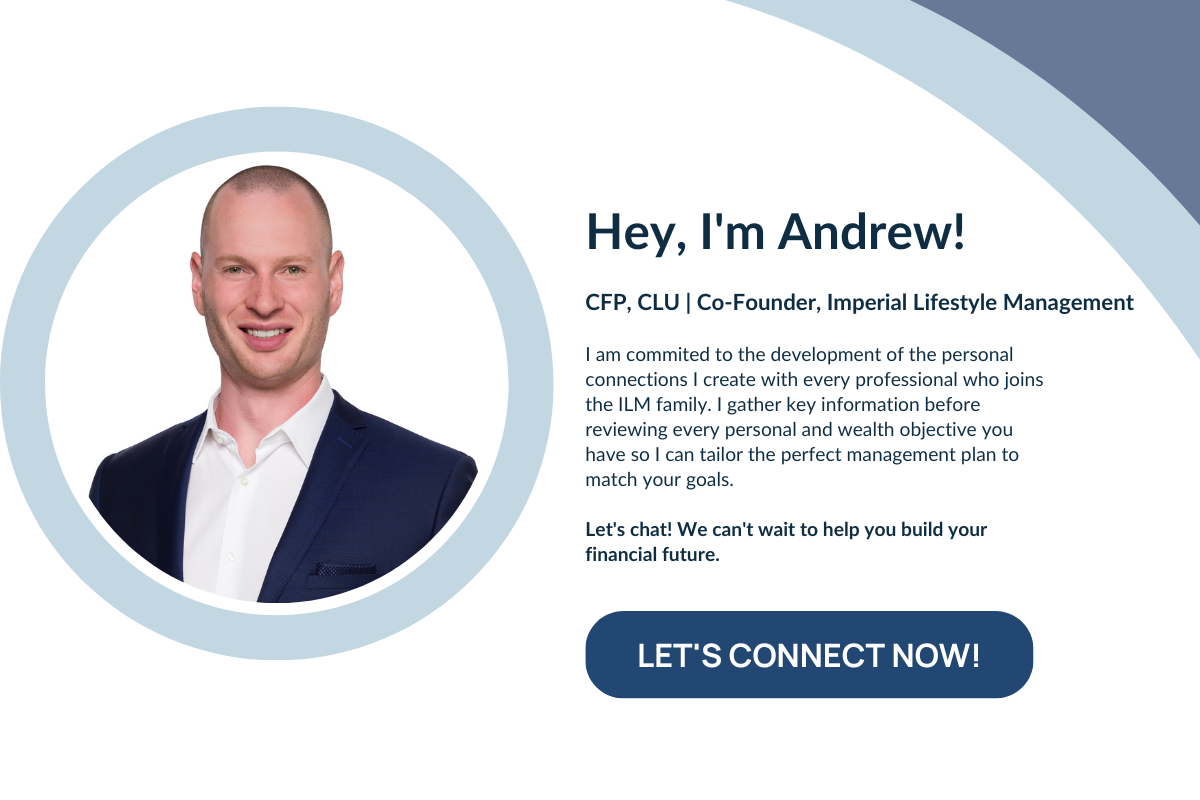
Stepping into practice as a newly licensed physician is a milestone of ambition and dedication. Yet, as income rises and life gets more complex, managing that success demands more than clinical excellence—it requires thoughtful financial planning.
At Imperial Lifestyle Management, we’ve guided hundreds of physicians through the crucial early stages of their financial journey. And while every client is unique, the same mistakes often arise. Here’s how to avoid them—and build your future with purpose.
Mistake 1: Incorporating at the Wrong Time
Incorporation can be a powerful tool—but only if used strategically. Some physicians jump in too early, burdening themselves with unnecessary administrative costs. Others wait too long, missing out on potential financial advantages.
Incorporation makes sense when:
- You’re consistently earning more than you spend.
- You plan to invest retained earnings within the corporation.
- You want access to corporate-level investment opportunities or long-term planning tools.
If you’re still paying off debt or covering basic expenses, incorporation might not be the right fit—yet. Speak to a financial advisor who understands medical careers and provincial nuances to assess your timing.
Mistake 2: Misunderstanding Income Allocation Rules
Dividing income among family members may sound like a tax-smart idea, but the Tax on Split Income (TOSI) rules often limit its effectiveness.
Income splitting could work if:
- Your spouse is over 65 and you’re planning retirement income.
- They work 20+ hours per week in the business.
- They own 10%+ of a non-professional corporation.
- They receive fair compensation for genuine work performed.
TOSI rules are complex, and mistakes can lead to punitive taxation at the highest marginal rate. Work with advisors who can guide you through the available exemptions and structure your compensation properly.
Mistake 3: Relying Only on Dividends
Some incorporated doctors take all their compensation as dividends, assuming it’s more efficient. But this approach can limit long-term growth.
Why you shouldn’t ignore salary:
- Only salary creates RRSP room.
- CPP contributions build a baseline for retirement income.
- Salary is deductible to your corporation—potentially reducing its tax exposure.
Often, a hybrid compensation plan—balancing salary and dividends—is optimal. The right blend depends on your lifestyle needs, income level, and retirement objectives.
Mistake 4: Ignoring RRSPs and TFSAs
Once incorporated, many doctors shift focus to corporate accounts and neglect personal registered plans. That’s a mistake.
Here’s why RRSPs and TFSAs still matter:
- RRSPs offer immediate deductions and tax-deferred growth.
- TFSAs grow tax-free and don’t affect benefit eligibility.
- If you pay yourself only in dividends, you lose RRSP contribution room entirely.
Smart financial planning means coordinating your corporate and personal strategies to ensure both short-term flexibility and long-term wealth growth.
Mistake 5: Setting Up a Holding Company Without Purpose
A holding company sounds sophisticated—but without a clear reason, it’s an unnecessary layer of complexity.
You might benefit from a holdco if:
- You’re building significant retained earnings.
- You want to isolate passive investments from your practice.
- You’re exploring advanced estate or creditor protection strategies.
Early in your career, however, a holding company may just mean extra costs and compliance issues. Build the foundation first—then structure for scale.
Mistake 6: Buying Permanent Life Insurance Too Early
Permanent life insurance (like whole or universal life) is often pitched to physicians as a tax-sheltered investment. While it can be a useful tool, it’s not ideal for everyone—especially not at the beginning.
Permanent insurance is best for:
- Doctors who have already maxed out RRSPs, TFSAs, and corporate investments.
- Those with surplus corporate funds.
- Physicians with long-term estate planning needs.
In most cases, term life insurance is the better fit for new doctors: affordable, flexible, and designed to protect your family while you build wealth.
The Bottom Line: Build Intentionally
Your first few years in practice set the tone for your financial future. With the right structure, you can enjoy both security and flexibility—without sacrificing your lifestyle.
At Imperial Lifestyle Management, we specialize in financial strategies for physicians. Whether you’re just entering practice or expanding your success, our advisors help you take control of your wealth with confidence and clarity.
Let’s Build a Financial Strategy That Works for You
Book a free consultation today at imperiallife.ca.




Stay In Touch